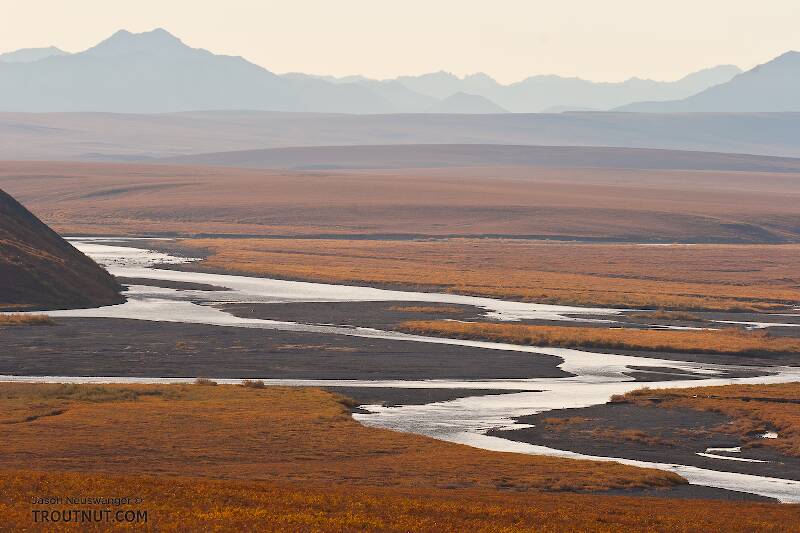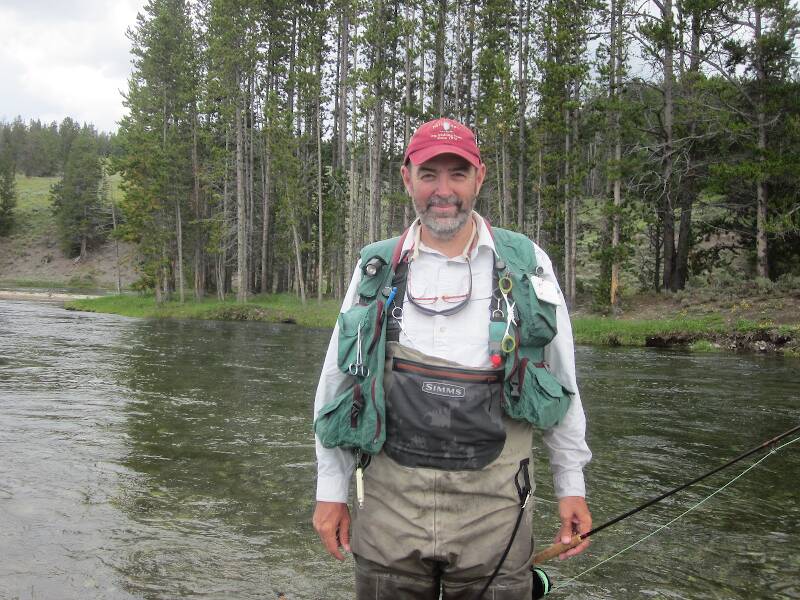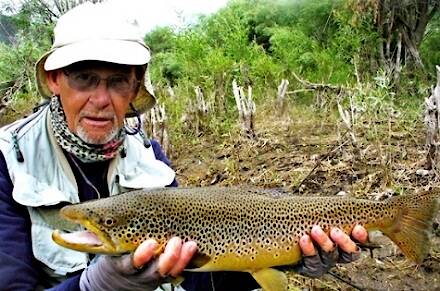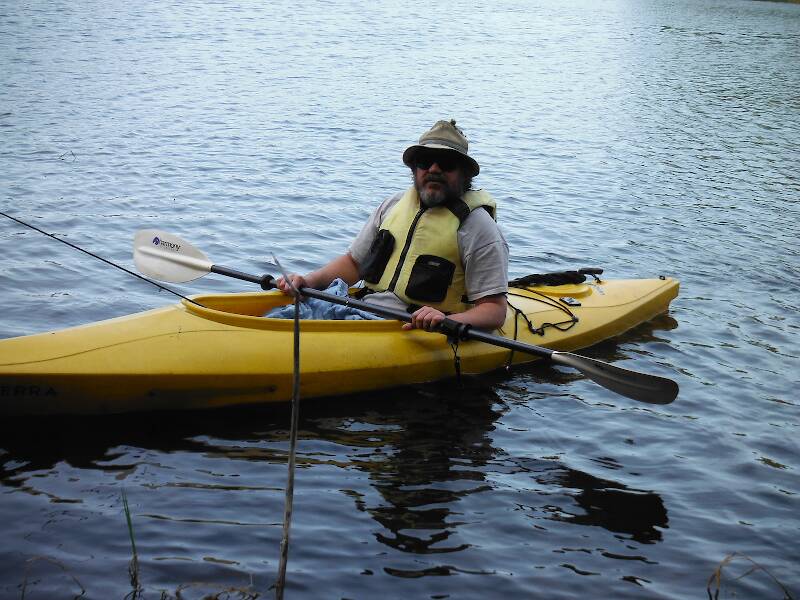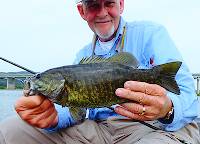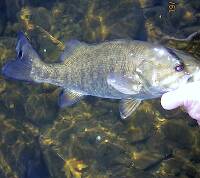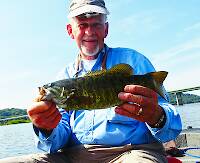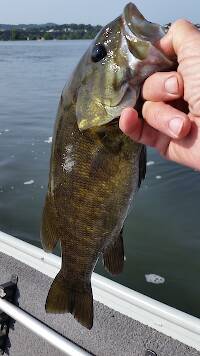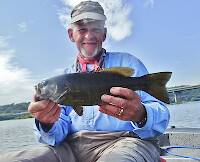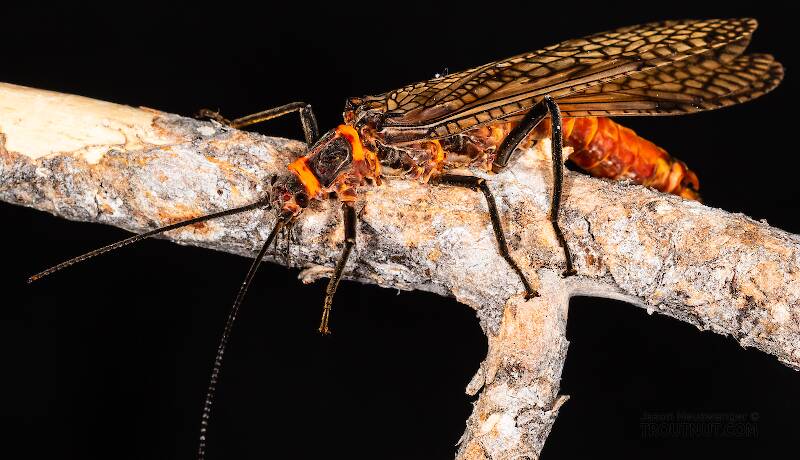
Salmonflies
Pteronarcys californica
The giant Salmonflies of the Western mountains are legendary for their proclivity to elicit consistent dry-fly action and ferocious strikes.
Featured on the forum
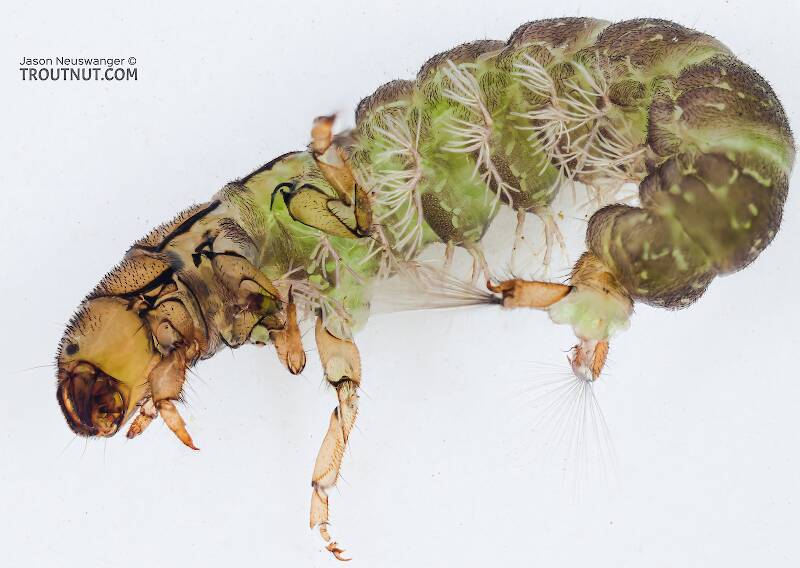
With a bit of help from the microscope, this specimen keys clearly and unsurprisingly to Hydropsyche.

Troutnut is a project started in 2003 by salmonid ecologist Jason "Troutnut" Neuswanger to help anglers and
fly tyers unabashedly embrace the entomological side of the sport. Learn more about Troutnut or
support the project for an enhanced experience here.
Bcvizina on Feb 10, 2010February 10th, 2010, 3:26 am EST
I am looking to make a master box this season for me and all my comrades for an extravaganza of mayfly hatch fishing. I am looking for everyone's go-to fly for when the hatch comes on strong. This is my first season really hitting the hatches hard and I'm looking to waste no time on the water figuring out which fly is catching the most fish. The fly patterns I'm looking for are:
- Hendrickson
- Red Quill
- Blue Winged Olive
- Sulpher Dun
- Gray Drake
- Quill Gordon
- Hexagenia (especially)
- Mahogany Dun
- Brown Drake
- Light Cahill
- Pale Evening Dun
I am looking for Dry fly patterns mostly, but if a nymph or emerger is your best for a hatch than that would be helpful.
Also, I am looking for a judgement on the intensity of each hatch, so I can know how to plan my trips with the greatest potential for success.
Thanks Everyone
- Hendrickson
- Red Quill
- Blue Winged Olive
- Sulpher Dun
- Gray Drake
- Quill Gordon
- Hexagenia (especially)
- Mahogany Dun
- Brown Drake
- Light Cahill
- Pale Evening Dun
I am looking for Dry fly patterns mostly, but if a nymph or emerger is your best for a hatch than that would be helpful.
Also, I am looking for a judgement on the intensity of each hatch, so I can know how to plan my trips with the greatest potential for success.
Thanks Everyone
Oldredbarn on Feb 10, 2010February 10th, 2010, 4:43 am EST
Brent,
Where are you fishing? We kind of need to know this because each river system and the hatches there are different.
There is nothing "wrong" with your list as long as you are on the water when any of these hatches listed occur.
If you are fishing in Michigan...google Michigan Emergence Chart...It's detailed enough for the major hatches in Michigan.
Spence
Where are you fishing? We kind of need to know this because each river system and the hatches there are different.
There is nothing "wrong" with your list as long as you are on the water when any of these hatches listed occur.
If you are fishing in Michigan...google Michigan Emergence Chart...It's detailed enough for the major hatches in Michigan.
Spence
"Even when my best efforts fail it's a satisfying challenge, and that, after all, is the essence of fly fishing." -Chauncy Lively
"Envy not the man who lives beside the river, but the man the river flows through." Joseph T Heywood
"Envy not the man who lives beside the river, but the man the river flows through." Joseph T Heywood
Wbranch on Feb 10, 2010February 10th, 2010, 11:05 am EST
Bcvizina,
Get a copy of "Selective Trout" by Swisher & Richards or a copy of Scwiebert's "Matching the Hatch". Both have lots of data on all phases of the mayfly life cycle.
Get a copy of "Selective Trout" by Swisher & Richards or a copy of Scwiebert's "Matching the Hatch". Both have lots of data on all phases of the mayfly life cycle.
Catskill fly fisher for fifty-five years.
Jmd123 on Feb 10, 2010February 10th, 2010, 11:26 am EST
Brent, I like the good old White Wulff a lot - at one time, it was my absolute favorite fly (and probably still is my favorite dry fly). It works well during white mayfly hatches - those June-July Stenonema species that a Light Cahill works well for, as well as the Ephoron "whitefly" hatches later in the summer. I tie them in sizes 10-14. This is also a good searching pattern when no hatch is apparent, along with the good old Royal Wulff in the same sizes. Both have worked extremely well in northern Michigan trout streams, particularly the Maple (Emmet/Cheboygan Counties) and the Rifle (Ogemaw Co.) which are the two streams I have fished the most in that part of the world. They have also worked well on southern MI trout streams, Missouri trout streams, smallmouth bass in the Huron River, large sunfish in spring-fed central Texas streams, etc...
Best of luck and I plan on hitting some of that water myself this year, especially if my (once and possibly future) boss's promises come through and he gets enough Obama bucks to hire me and I move to the Tawas Bay region...putting me within striking distance of the AuSable, Rifle, Au Gres, Pine, etc...not to mention more warmwaters than I can fish in a lifetime!
Jonathon
P.S. Although who knows what exactly it imitates, an Adams works well at times too. In fact, a #10 Female Adams once worked extremely well for large sunfish and crappie (!!) on a small northern Michigan lake during a Hexagenia hatch (yep, they occur in lakes too, and trout aren't the only fish that thinks they're tasty).
Best of luck and I plan on hitting some of that water myself this year, especially if my (once and possibly future) boss's promises come through and he gets enough Obama bucks to hire me and I move to the Tawas Bay region...putting me within striking distance of the AuSable, Rifle, Au Gres, Pine, etc...not to mention more warmwaters than I can fish in a lifetime!
Jonathon
P.S. Although who knows what exactly it imitates, an Adams works well at times too. In fact, a #10 Female Adams once worked extremely well for large sunfish and crappie (!!) on a small northern Michigan lake during a Hexagenia hatch (yep, they occur in lakes too, and trout aren't the only fish that thinks they're tasty).
No matter how big the one you just caught is, there's always a bigger one out there somewhere...
Oldredbarn on Feb 10, 2010February 10th, 2010, 1:51 pm EST
Matt,
Good advice! Those were my first and second reads. In Selective Trout, primarily worked out on the Au Sable, they break the season down in to sections and explain what flies to expect during those periods. Early season, late spring, early summer etc...They also offer some patterns to cover them.
In the anniversay edition out a few years back they have added an expanded section on caddis reflecting some of the work Carl Richards had done. Good stuff...A beginner could still have a half way decent chance on the Au Sable if he gave that book a good read.
Speaking of Carl...I am going to give the location of my offering for "Where is this spot?"...I was surprised on how few Michiganians we seem to have on this site since it's a pretty well known spot...
Spence
Good advice! Those were my first and second reads. In Selective Trout, primarily worked out on the Au Sable, they break the season down in to sections and explain what flies to expect during those periods. Early season, late spring, early summer etc...They also offer some patterns to cover them.
In the anniversay edition out a few years back they have added an expanded section on caddis reflecting some of the work Carl Richards had done. Good stuff...A beginner could still have a half way decent chance on the Au Sable if he gave that book a good read.
Speaking of Carl...I am going to give the location of my offering for "Where is this spot?"...I was surprised on how few Michiganians we seem to have on this site since it's a pretty well known spot...
Spence
"Even when my best efforts fail it's a satisfying challenge, and that, after all, is the essence of fly fishing." -Chauncy Lively
"Envy not the man who lives beside the river, but the man the river flows through." Joseph T Heywood
"Envy not the man who lives beside the river, but the man the river flows through." Joseph T Heywood
Bcvizina on Feb 10, 2010February 10th, 2010, 5:05 pm EST
Thanks everybody for the advice. I am pretty new to the sport and any local information I can get is the best. I primarily fish the Sturgeon River, Pigeon River, and the Upper Black River. Although this summer I plan on making a trip to the Manistee and the Au Sable.
I have a pretty detailed Northern Michigan emergence chart, I was just looking to tie flies to match these hatches. Thanks for the advice once again, this is exactly what I was looking for.
Thanks again,
Brent
I have a pretty detailed Northern Michigan emergence chart, I was just looking to tie flies to match these hatches. Thanks for the advice once again, this is exactly what I was looking for.
Thanks again,
Brent
Oldredbarn on Feb 11, 2010February 11th, 2010, 2:46 am EST
Brent,
It's not a bad idea to check out some of the local patterns of where you are headed. The Au Sable, for instance, has a long history of fly fishing and local tyers and their patterns. Google Jerry Regan for example...He's kind of the keeper of the flame here in Michigan for traditional Au Sable ties.
A wonderful fly is the Borchers...It can be tied in a Catskill style or is effective as a parachute...Depending on the size you use it can cover the darker flies...I think in a size 12 or so it was originally tied to cover the Leptophlebia cupida (Black Quill)...In a size 16/18 it can cover the "Little Mahogany" or what guys back east call the Blue Quill (Paraleptophlebia adoptiva). It's a great all-rounder and as an attractor too.
The Robert's Yellow Drake is another Michigan fly...Small sizes cover Sulphers and large sizes can cover the Drakes or the Hex...The Harris Special is a nice small stonefly pattern from Michigan...
I have had success with Crag Matthew's Sparkle Dun when covering hatching mayflies. He now has a YouTube out there where he shows how he ties it. Basically change color and size to match whatever hatch you expect to see when you are out fishing.
I have heard good things about the Black. The guys that I know that fish it don't like talking about it, which is usually a sure sign it's worth looking in to. It's supposed to be a good Brookie stream.
Take Care!
Spence
It's not a bad idea to check out some of the local patterns of where you are headed. The Au Sable, for instance, has a long history of fly fishing and local tyers and their patterns. Google Jerry Regan for example...He's kind of the keeper of the flame here in Michigan for traditional Au Sable ties.
A wonderful fly is the Borchers...It can be tied in a Catskill style or is effective as a parachute...Depending on the size you use it can cover the darker flies...I think in a size 12 or so it was originally tied to cover the Leptophlebia cupida (Black Quill)...In a size 16/18 it can cover the "Little Mahogany" or what guys back east call the Blue Quill (Paraleptophlebia adoptiva). It's a great all-rounder and as an attractor too.
The Robert's Yellow Drake is another Michigan fly...Small sizes cover Sulphers and large sizes can cover the Drakes or the Hex...The Harris Special is a nice small stonefly pattern from Michigan...
I have had success with Crag Matthew's Sparkle Dun when covering hatching mayflies. He now has a YouTube out there where he shows how he ties it. Basically change color and size to match whatever hatch you expect to see when you are out fishing.
I have heard good things about the Black. The guys that I know that fish it don't like talking about it, which is usually a sure sign it's worth looking in to. It's supposed to be a good Brookie stream.
Take Care!
Spence
"Even when my best efforts fail it's a satisfying challenge, and that, after all, is the essence of fly fishing." -Chauncy Lively
"Envy not the man who lives beside the river, but the man the river flows through." Joseph T Heywood
"Envy not the man who lives beside the river, but the man the river flows through." Joseph T Heywood
Jmd123 on Feb 11, 2010February 11th, 2010, 10:00 am EST
Brent, if you're fishing the Sturgeon, Pigeon, and Black, you're within striking distance of the Maple. Look on the map at the boundary between Emmet and Cheboygan Counties, west of Douglas and Burt Lakes. The East Branch of the Maple holds trout early in the year but warms up too much by summer because it is fed by surface waters of Douglas Lake, but the West Branch is spring-fed from a swamp and is nice and cold year-round with a good brookie population (plus browns of course). The main stem below Lake Kathleen is good for larger browns, some nice brookies, and a few rainbows (including some bigger guys) - this is where I have done most of my fishing there. BTW, the University of Michigan Biological Station on Douglas Lake is my old stomping grounds from my botany undergrad/entomology grad school days, and the mainstem of the Maple is where I first threw flies at trout some 25 years ago, so it has great memories and emotional attachment for me.
Hatches are: Light Hendricksons/Red Quills in May, mostly in the afternoon; Light Cahills in June and July (dusk, amongst the Hex too); HEAVY Hex hatches around 4th of July (1-2 weeks before and after - go to Hoppie's Bar on Burt Lake and when they show up there, it's about a week later that they'll be hatching on the Maple); then not much for the rest of summer, time to get out those searching patterns and attractors like the Wulff patterns I mentioned earlier. There's some caddis activity as well but the Hendricksons, Light Cahills, and Hex are the big ones and they bring fish up to the surface pretty darned well - I've had them feed within 6 feet of me and felt them run into my leg after dark out there...
Last summer I was there in late August - not usually a productive time for me on that river, yet I managed to raise three fish and bring two to net on a #10 Royal Wulff. At least one of these fish was rising, to what I have no idea...
Best of luck!!! The Sturgeon, Pigeon, and Black are as good as any trout streams anywhere and the Maple is not far behind. My other favorite, as mentioned earlier, is the Rifle - plenty of advice for you on that one if you ever get there...
Jonathon
Hatches are: Light Hendricksons/Red Quills in May, mostly in the afternoon; Light Cahills in June and July (dusk, amongst the Hex too); HEAVY Hex hatches around 4th of July (1-2 weeks before and after - go to Hoppie's Bar on Burt Lake and when they show up there, it's about a week later that they'll be hatching on the Maple); then not much for the rest of summer, time to get out those searching patterns and attractors like the Wulff patterns I mentioned earlier. There's some caddis activity as well but the Hendricksons, Light Cahills, and Hex are the big ones and they bring fish up to the surface pretty darned well - I've had them feed within 6 feet of me and felt them run into my leg after dark out there...
Last summer I was there in late August - not usually a productive time for me on that river, yet I managed to raise three fish and bring two to net on a #10 Royal Wulff. At least one of these fish was rising, to what I have no idea...
Best of luck!!! The Sturgeon, Pigeon, and Black are as good as any trout streams anywhere and the Maple is not far behind. My other favorite, as mentioned earlier, is the Rifle - plenty of advice for you on that one if you ever get there...
Jonathon
No matter how big the one you just caught is, there's always a bigger one out there somewhere...
Aaron7_8 on Feb 11, 2010February 11th, 2010, 1:51 pm EST
Parachute Adams.
Bcvizina on Feb 14, 2010February 14th, 2010, 5:42 pm EST
Thanks for all the great information. I have fished the Maple in the past and had little success in the heat of the summer. My interest was turned away from that river upon discovering that only 4 miles of the river was dedicated to a "blue ribbon trout stream"
http://www.trailstotrout.com/blueribbon.html
I guess I will have to look more into the Maple, sounds like a very interesting river that I am a little ashamed I looked over.
Thanks again for the information about hatch times, something I was really looking forward to getting for posting this topic. Also, any other information regarding hatch times or observances of hatches in the Sturgeon, Pigeon, Black, and Maple rivers would be great.
http://www.trailstotrout.com/blueribbon.html
I guess I will have to look more into the Maple, sounds like a very interesting river that I am a little ashamed I looked over.
Thanks again for the information about hatch times, something I was really looking forward to getting for posting this topic. Also, any other information regarding hatch times or observances of hatches in the Sturgeon, Pigeon, Black, and Maple rivers would be great.
Troutnut on Feb 15, 2010February 15th, 2010, 6:54 am EST
I would suggest getting your hands on a copy of Fly-fishing Pressured Water by Lloyd Gonzales, who's an on-and-off regular on this website. He has some really innovative tying ideas and patterns that have become my go-to flies during many hatches.
Still, I think the best thing you can do is carry a variety of styles and know what conditions they're each designed for (e.g. parachute & comparaduns on flat water, Catskill-style in riffles).
Still, I think the best thing you can do is carry a variety of styles and know what conditions they're each designed for (e.g. parachute & comparaduns on flat water, Catskill-style in riffles).
Jason Neuswanger, Ph.D.
Troutnut and salmonid ecologist
Troutnut and salmonid ecologist
Delablobbo
Posts: 21
Posts: 21
Delablobbo on Feb 19, 2010February 19th, 2010, 11:12 am EST
Adams, parachute adams, comparaduns for hatch-matching. Thow in the good old Elk Hair Caddis, some Griffiths Gnats, and you're ready.
Jmd123 on Feb 19, 2010February 19th, 2010, 12:40 pm EST
Brent, there's more to the Maple than meets the eye. And late summer is not the time to do well there, even though you can still pick up a few fish on attractors, because the hatches are primarily earlier in the season. As I said, Light Hendricksons in May, Light Cahills in June/July, and Hex in late June and early July. Keep a few Royal Wulffs handy in case its a quiet night for hatching.
The Maple is worth exploring and I've seen some really big ones come out of there, with a few rainbows amongst the brownies. Many years ago I watched an 18-inch rainbow break off my mentor's leader (he was a forest ecology professor teaching at the U of M Bio Station), not to mention the night I netted a 17" brown for him, then saw him pull another 17" brown and a 10" rainbow from his creel that he had caught earlier. "Hey Jon, come up here and net this honker for me!"
Jonathon
The Maple is worth exploring and I've seen some really big ones come out of there, with a few rainbows amongst the brownies. Many years ago I watched an 18-inch rainbow break off my mentor's leader (he was a forest ecology professor teaching at the U of M Bio Station), not to mention the night I netted a 17" brown for him, then saw him pull another 17" brown and a 10" rainbow from his creel that he had caught earlier. "Hey Jon, come up here and net this honker for me!"
Jonathon
No matter how big the one you just caught is, there's always a bigger one out there somewhere...
KerryWhite on Apr 26, 2010April 26th, 2010, 3:54 pm EDT
I guess I am the odd duck on this post but I have caught more trout on a Hornberg, a woodchuck caddis and a black beetle than all other patterns put together. Guess it must be a confidence thing. Whitie
Quick Reply
Related Discussions
Topic
Replies
Last Reply
3
Jun 17, 2017
by JohnR
by JohnR
1
Mar 8, 2008
by Kroil
by Kroil
2
Sep 3, 2008
by Jjlyon01
by Jjlyon01

